Unexpected events—good or bad—often trigger career detours. For TJ Sassini, it was a lightbulb revelation. Isabelle LaRue’s trigger was a layoff. For Leah Lizarondo, it was the birth of a child. For Bradley Olman, rapidly changing technology rendered his skills obsolete. Thomas Nguyen’s turning point was a friend’s comment that summed up what Nguyen already knew deep down: He was miserable.
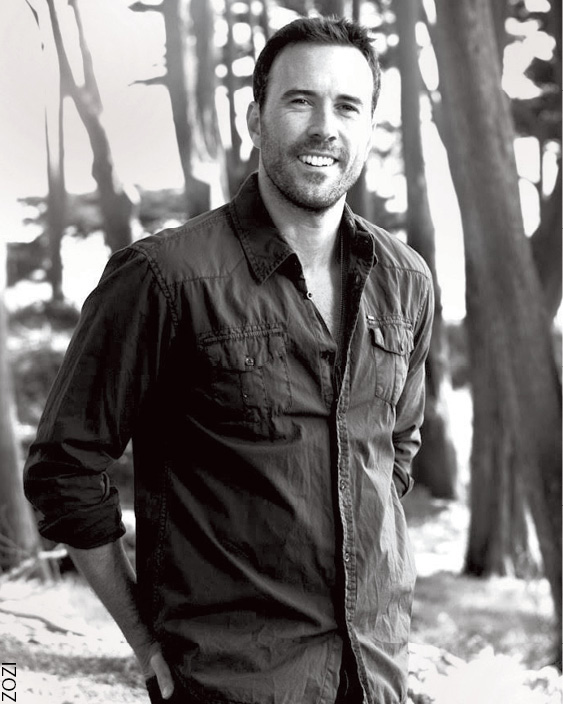 TJ Sassini: The Path Not Taken
TJ Sassini: The Path Not Taken
TJ Sassini’s life changed during a business flight in late 2006. He was about a week from his 30th birthday when he saw another traveler, probably around retirement age, wearing a business suit like his and carrying a similar bag. Sassini saw a 60-something-year-old version of himself. “It just struck me that if I don’t take control and drastically change something, I’ll just be on that track forever.… So at that moment, I decided I was going to quit my job,” says Sassini, now 39.
Before venturing into entrepreneurship, Sassini worked at several technology companies specializing in SaaS (software as a service) and nanotechnology. He had always been interested in building something of his own but was employed by others. “[That work] was intellectually stimulating, but it wasn’t something that I was personally very passionate about.”
He gave two months’ notice without thinking of his next career move. He talked to his mother. “She said, ‘What are you doing?’ I said, ‘I’m traveling, and I’m going to figure it out.’ She said, ‘TJ, how can you afford to do this?’ I just looked at her and said, ‘How can I afford not to?’”
Sassini sold his house and car; he donated other items to charity. “I kept only the things I could ride on or ski on or read or that brought me joy. And then I took off for Europe. I didn’t have any intention on this trip other than to travel, but it’s interesting what I found out.”
Sassini had read that the subconscious brain processes information much faster than the conscious brain and that even when people aren’t consciously thinking about day-to-day activities, they consume valuable brainpower. “When I got rid of those things—the job, the house, the car, dropping off the dry cleaning and a million other things—I experienced a lot of free-flowing creativity.”
That’s how Sassini came up with ZOZI, the dot-com startup he leads. While cycling across Europe, it struck him that others probably were frustrated by the same difficulties he experienced in booking excursions. So why not create an online platform to improve the process? He kept traveling, tweaking his ideas. A year passed.
He returned to San Francisco and launched the company in 2010. “It took us about three years to finally find the right business model and product market fit,” Sassini says. “The focus initially was on selling adventurous activities to local customers, and that’s still at the core of our brand DNA. Today we’re focused more broadly on the $125 billion global activities market where we provide the merchants with a platform called ZOZI Advance to manage their reservations and then sell their activities to our customers on ZOZI.com.”
Thousands of businesses in about 90 countries use ZOZI’s SaaS platform, Sassini says, and 5 million people have purchased activities around the globe. Forbes was impressed, ranking ZOZI at No. 17 on its “America’s Most Promising Companies” list in January 2015.
As for Sassini, upon returning from his vacation, he had planned to ease back into work. Instead he worked until 3 a.m. “It’s not because I had to. I just really love my work.”
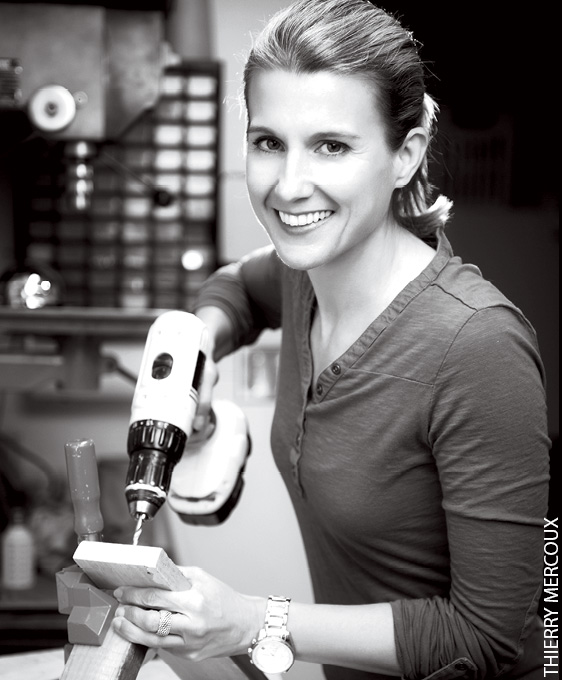 Isabelle LaRue: Leaving the Hamster Wheel
Isabelle LaRue: Leaving the Hamster Wheel
Isabelle LaRue has made two major career transitions. The French Canadian had worked successfully as an engineer before her interest in business prompted her to earn her MBA. Afterward she worked in marketing and market research for a pharmaceutical company with global headquarters in a Chicago suburb. Then came the pinnacle of her career: being named to a product launch team.
“The more money I was making, the more promotions I was getting, the more unhappy I was becoming,” says LaRue, now 45. “It wasn’t a great fit for me. I guess fate intervened, because the product we were working on didn’t get [government approval].”
Launch team members, including LaRue, were laid off in January 2009. “When I got the severance package, I made a conscious decision to really explore what I wanted to do with my life and not go back to that hamster wheel.”
Related: What to Do When You Have No Idea What to Do With Your Life
She thought about the joy she found in making things. LaRue talked to people doing different types of work to get their career perspectives, received counseling from a life coach and took hands-on courses until she found a captivating niche: video production.
In the meantime, she had moved to New York to be closer to family. LaRue had savings, but the move required budgeting and downsizing to a 450-square-foot studio apartment. She looked for ideas to customize and organize her space but found nothing that was budget-friendly and aimed at do-it-yourselfers.
From this problem came her next professional endeavor: her YouTube series Engineer Your Space. Equipment wasn’t expensive, and she would do the on- and off-camera work herself. Friends provided acting tips and help designing a logo. LaRue was confident she’d figure out the rest.
“My immediate family thought I lost my marbles and needed an intervention. What was I doing throwing away all that education, six-figure salary, security and all that? It was very difficult to stick to my guns and say my happiness is worth it.”
“My immediate family thought I lost my marbles and needed an intervention. What was I doing throwing away all that education, six-figure salary, security and all that? It was very difficult to stick to my guns and say my happiness is worth it.”
LaRue’s family is completely onboard now, and she laughs at the memory. But at the time, she had much to learn, like how to attract viewers and sponsors… and make money.
About six months in and still needing viewers, she hit a low point. Then she learned the show was nominated for best educational web series by the International Academy of Web Television. This industry affirmation boosted her morale and the show’s credibility. The next year her show won that award and received the first of her four Taste Award nominations, which celebrate achievements in lifestyle-entertainment broadcasting.
To increase her following, LaRue enlisted a business coach to help with social media exposure. Then, she says, “I went old-school,” attending builder, hardware, tools and home design shows to meet suppliers of products she used for stretching function and improving aesthetics in small spaces. Those relationships paid off in sponsorships. Viewership increased, and people as far away as India and Australia emailed their praise.
LaRue has since moved to Los Angeles, where a community of people do similar work. She is happy. “We have only one life, and we’re all given 24 hours a day, whether you’re Bill Gates or Joe Blow down the street. It’s your choice how you spend that 24 hours,” LaRue says. “Pursuing what you love will bring you where you’re supposed to be. And it is within our power to choose.”
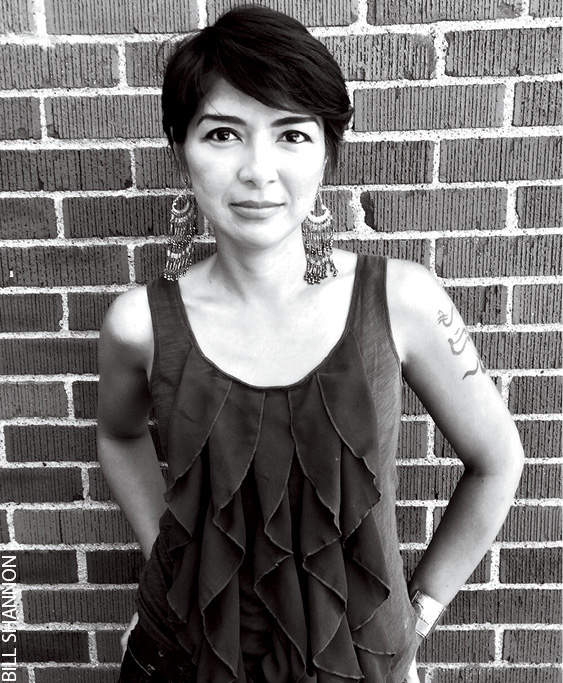 Leah Lizarondo: Family First
Leah Lizarondo: Family First
Leah Lizarondo’s dad wanted her to have a predictable, comfortable life, and she was fine with that. After receiving a bachelor’s degree from a Philippines college, Lizarondo earned a master’s degree in the States, where she worked for a venture capital firm and Fortune 500 corporations in product management and technology.
But her father couldn’t have known that years earlier he had sparked his daughter’s interest in a field that would ultimately prompt her to chart a surprising course. He had purchased the Time-Life cookbook series Foods of the World, and she spent hours leafing through the pages and dreaming. Her first dish was Swedish meatballs.
If she’d ever seriously thought about working with food, those notions were quashed by a chef boyfriend who said Lizarondo could never have a career in food because she cried while chopping onions. He might’ve been half-joking, she says, but his words fueled her self-doubt.
Lizarondo proceeded full throttle into her corporate career, got married (to someone else), settled in Pittsburgh and had two children.
By 2011, she was traveling all the time for work. She and her husband wanted a third child, and when she got pregnant in her late 30s, she realized her life didn’t sync with her priorities. “My career was comfortable financially, and I liked it well enough. But it was taking time away from my family, which made me miserable.”
After her baby was born, Lizarondo wanted more free time and to do work “that makes me feel good. Food was the only answer.”
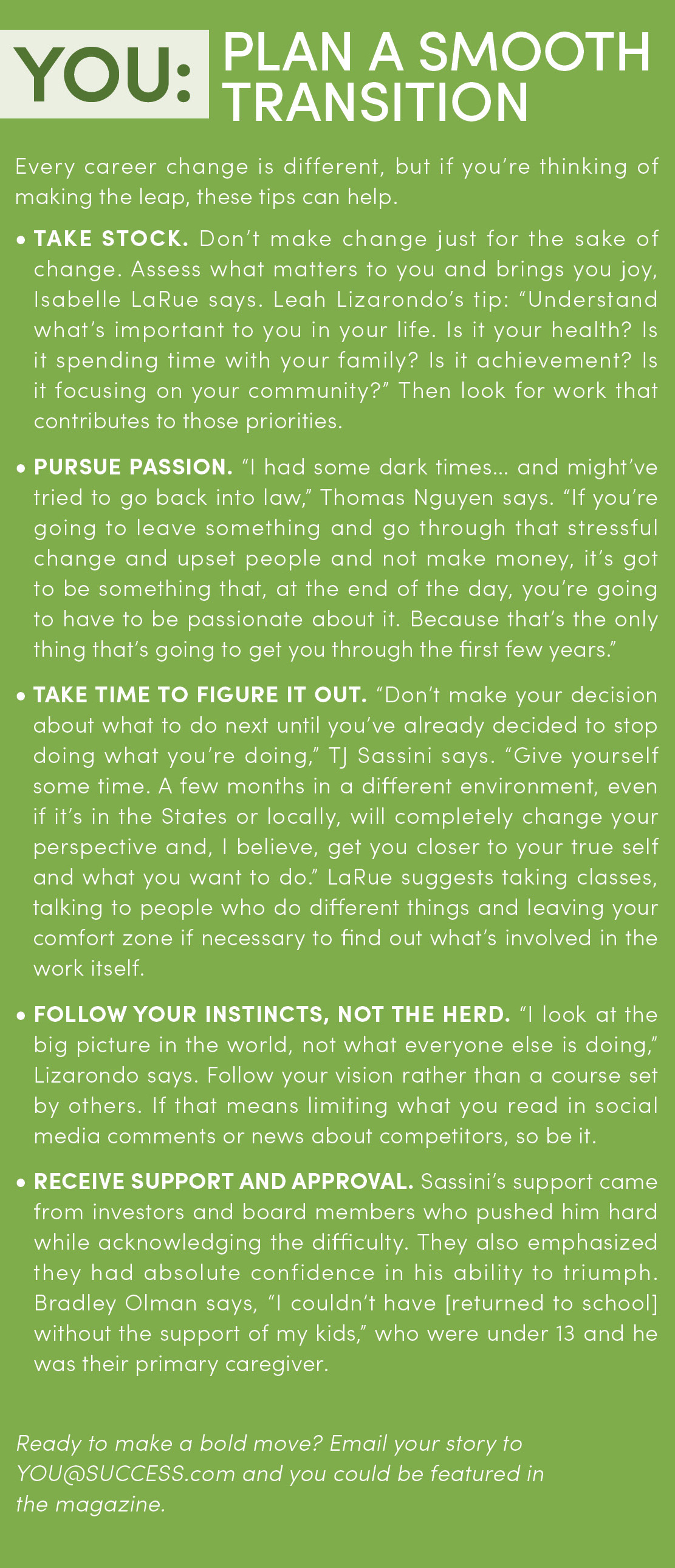
When she missed that first paycheck, half the family income, Lizarondo, now in her early 40s, knew her decision meant “a radical change in our lifestyle.” Initially she wrote her unpaid blog “Brazen Kitchen” to share her discoveries about eating more healthfully without giving up flavor. After a few months, Pittsburgh Magazine asked Lizarondo to write a weekly online column. She accepted. Soon after, she wrote for Oprah.com and was featured in MSN’s Re: Discover series, the Pittsburgh Post-Gazette and on National Public Radio, among others. Then she won the prestigious national City and Regional Magazine award for best blog of 2013.
Lizarondo’s deepening involvement in the food movement increased her awareness of food waste, hunger and poor nutrition. Last year, as her third child turned 3, she stepped up her work. She co-founded the nonprofit 412 Food Rescue aimed at stemming food waste and hunger in Pittsburgh. Some 40 percent of the food produced in this country goes to waste, she says. This year, the organization is rolling out technology to make it more efficient to get donations where they’re needed and scale the operation. 412 Food Rescue will also expand to other cities.
Lizarondo hopes her children take lessons from her experiences. “I want them to know what it’s like to work on something you believe in and to make your own meaning in the world.”
Related: 3 Steps to Build More Meaning Into Your Business
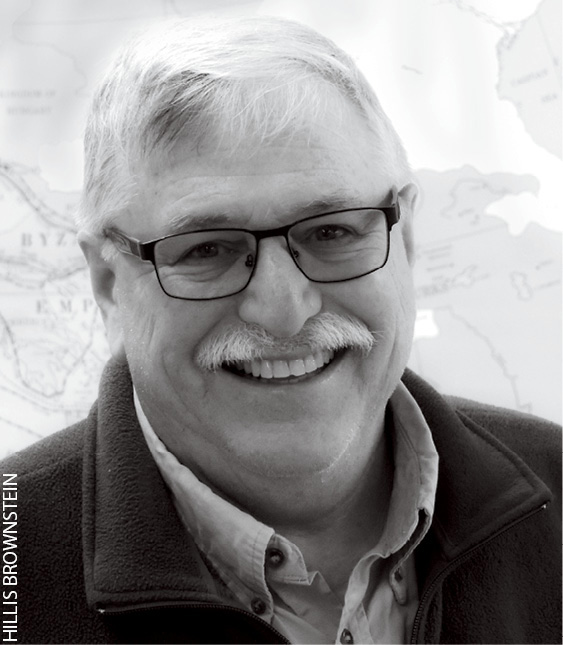 Bradley Olman: Back to School
Bradley Olman: Back to School
Bradley Olman initially wanted to follow in his father’s glamorous footsteps as a lawyer and theatrical agent. Olman was enrolled in law school at Fordham University in the Bronx, New York, when his father unexpectedly died. Nothing made sense anymore, Olman says. He took a leave from school, went to San Francisco and did the hippie thing, but returned because his draft lottery number was three, which meant a sure trip to Vietnam if he didn’t maintain a student deferment.
While studying in the Fordham library, he noticed beautiful photographs of ballet dancers. He had never thought about photography as a career, but suddenly it was his goal.
Olman gave an acquaintance heading to Japan $5,000 inherited from his father and asked the traveler to spend it all on high-quality photography equipment. “I literally broke my Jewish mother’s heart when I dropped out of law school and said I wanted to be a photographer.”
Olman started taking pictures and landed a job as a photographer’s assistant in New York. One of the photographer’s biggest clients was a lingerie company. Being surrounded by beautiful scantily clad models reinforced Olman’s career choice, he says.
Despite those lovely distractions, he applied himself, eventually developing a successful career for about 25 or 30 years. He married and had two children.
But the world was changing. During the 1990s, Olman wearied of frequent travel to assignments, hauling heavy equipment, and client preferences for digital images that could be easily manipulated via computer software. To compete, he would have to learn computer skills and spend a fortune on new equipment. He loved film and the satisfaction of capturing a moment, a time of day, an emotion—rather than altering the image later through digital wizardry. Olman couldn’t see himself continuing as a photographer.
If all of this weren’t enough, his marriage fell apart.
Olman had been teaching a class at New York’s School of Visual Arts on the business of photography. He also taught nature photography through Cornell University’s adult education program. He enjoyed teaching and coaching kids’ sports. One day, a teacher at his children’s school asked him whether he’d considered teaching full time. “I basically took his advice and did it.”
Olman went to night school to earn a master’s degree in education. He continued taking photography assignments, working close to home as much as possible to maximize time with his children, whose primary residence was with him after the divorce. “The kids were phenomenal. I couldn’t have done it without their support. I was working during the day, going to school at night. It was really a juggling thing.”
Once he received his degree, Olman (now 71) applied for teaching jobs. “I wasn’t getting any interviews until I took the dates off my résumé.” Administrators at a Union Beach, New Jersey, middle school gave him a chance. Since 2005 he has taught social studies and global studies there.
There have been challenges. “I took almost a $200,000-a-year pay cut to become a teacher.” He loves teaching, but is troubled by the declining respect for the profession, “while the reality is that the kids are doing well, especially in New Jersey.”
Related: How to Carve Out Your Life’s Passion
There’s also the bureaucracy of public schools to deal with. “They can torture me all they like—the administration, the politicians. Ultimately you close the classroom door, and it’s you and the kids. I don’t ever plan to retire. I think they’ll find me under my desk one day.”
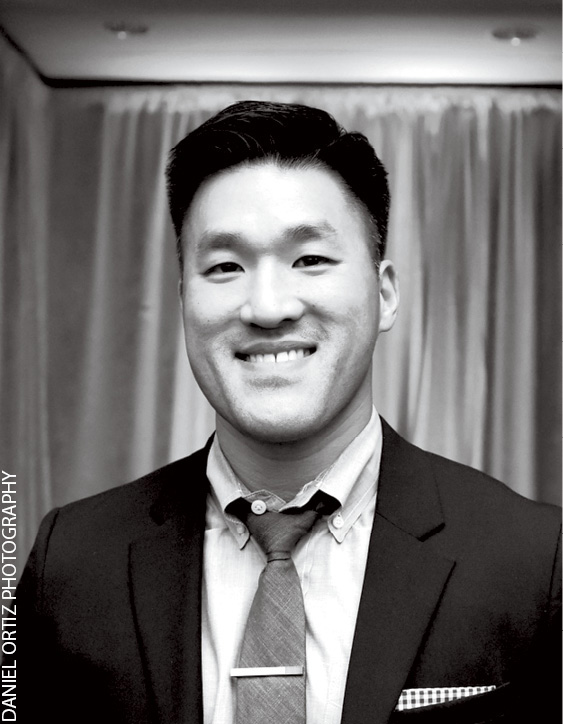 Thomas Nguyen: Pursuit of Happiness
Thomas Nguyen: Pursuit of Happiness
Thomas Nguyen remembers how his parents would introduce themselves to strangers and immediately tell them about their son, the lawyer. They were so proud.
“My parents had a difficult time after immigrating to the United States from Vietnam, and for them, the fastest way to attain a level of status and prestige and be in a field where you have the income to take care of your family was to become a doctor or a lawyer, especially in the Asian community in the ’80s and ’90s.”
Nguyen, 40, never thought of any other career path. He assumed his parents knew best. He went to the University of Texas law school and practiced insurance defense with a Houston firm. “By the third year, I was miserable. I’d wake up and hate going to work. I hated feeling that way at such a young age. For me, the turning point was one day when I thought about how much money I owe in student loans. I have to pay this back, and I don’t even want to do this anymore. I thought, What is wrong with me? I started feeling very guilty.”
Nguyen dared not share his feelings with his parents, but he confided to friends. One college buddy, Michael Tran, was starting his own business, a restaurant technology firm. “He said, ‘I know this sounds crazy, but how would you like to join me in building my business? Because I think what you are interested in’—marketing and branding—‘is what I’m not interested in.’”
Nguyen didn’t know anything about marketing, or so he thought. In college, he had enjoyed establishing an Asian-interest fraternity, now the largest in Texas. His role involved organizing parties, promoting the fraternity—essentially marketing and branding, although he hadn’t thought of it that way.
Nguyen didn’t jump at the offer. He needed to repay his loans and couldn’t bear to disappoint his parents. He agonized for months. “It got to the point where I just hated my life.” So his decision was clear.
He gave notice. When he told his parents, the conversation didn’t go well. “What made it worse is that I didn’t really have a specific plan. ‘I’m going into restaurant technology and do marketing and branding, although I don’t know anything about marketing and branding.’ ”
“My mom still hasn’t accepted what I’m doing. People say I don’t need my parents’ approval, but I would like it.”
Nguyen went to work with Tran while learning everything he could about marketing and branding. Tough times came around 2007. While still able to pay down those student loans (smaller payments, though), Nguyen was burning through his savings and had to move in with his parents. “They were like, ‘We told you so,’ but I had to do it. It was a huge slice of humble pie.”
The work remained fascinating. One early client was Paul Friedman, a former pizzeria owner who wanted to open a restaurant featuring South African cuisine. As they discussed the new concept, the three decided to become partners. Nguyen joined the restaurant full time.
Peli Peli, named for a pepper in southern Africa, opened in 2009. Tran sold the restaurant technology company in 2010 and joined Peli Peli full time.
Nguyen, who has married, says the restaurant has done well, ranking among the top Houston restaurants by Trip Advisor and Yelp reviewers. A second Houston location opened in 2015.
“By now we have a very ambitious goal… to put a Peli Peli in every major U.S. city. We’re hoping to make South African the next viable food category, much like Chinese or Italian or Brazilian. It will be an interesting journey, to say the least.”
Related: 4 Ways to Find Passion and Purpose in Your Life
This article originally appeared in the August 2016 issue of SUCCESS magazine.





